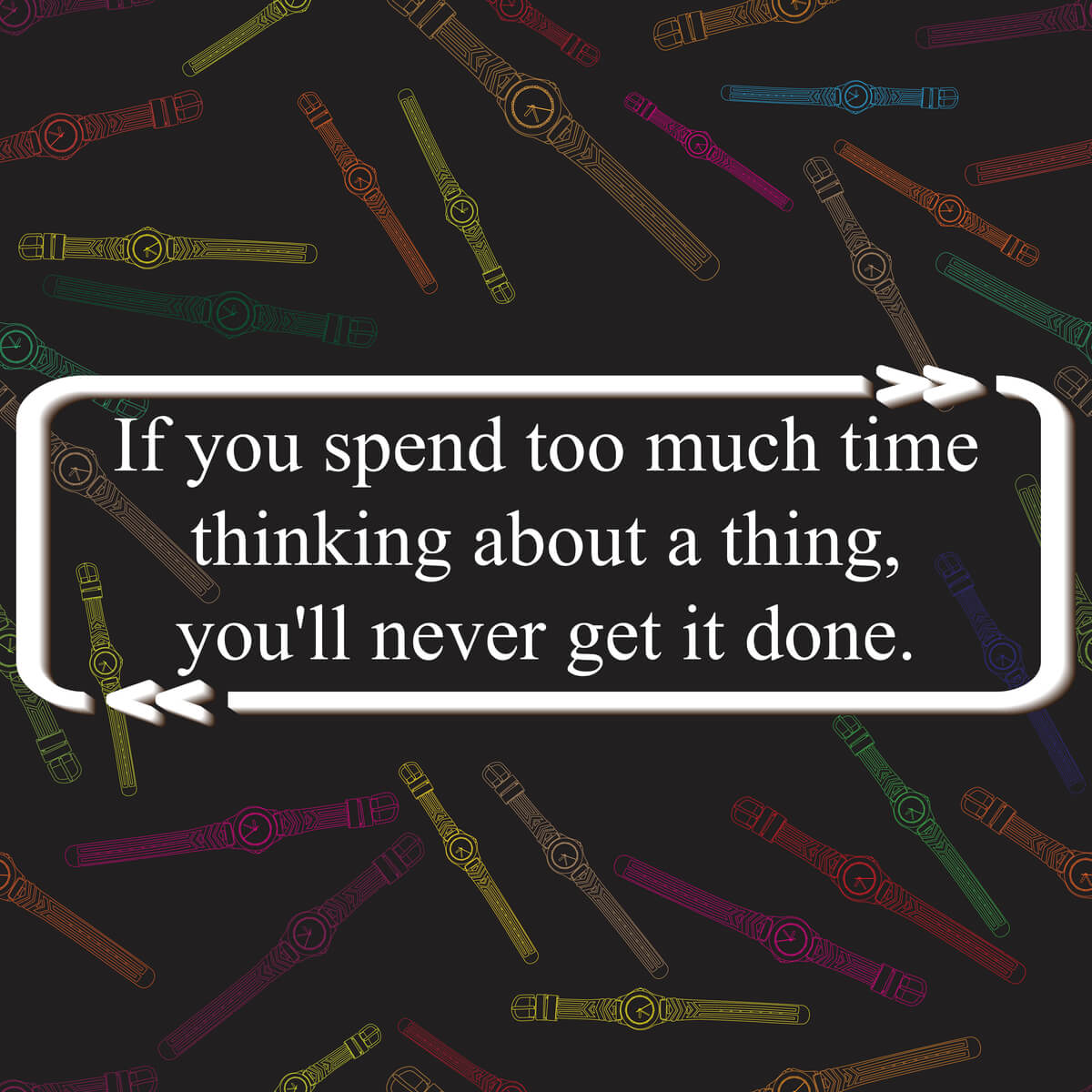
3 Things to do when you don’t know what to do.
December 14, 2021
You are in a crappy situation. You don’t really know what the right decision is, but you know that you must make a decision. Your jaw gets tight from clenching, you start shallow breathing and your mind goes a million miles an hour. Scenarios play out inside your mind. You start whittling down the “absolutely not,” choices and still you are left with a bunch of options. Dammit! If you could just see the end result. You can’t see the end result nor can you see all of the twists and turns ahead.
We have talked before about making the decision that you will regret the least making. This time, it is a little different. These are not so much possibly life altering decisions, but more of the day-to-day types of decisions. The annoying ones that just pop-up and seem to need some kind of decision made. Grocery shopping, haircuts, unscheduled trip to doctor, repairman coming to the house, and other daily decisions that take up a lot of our time. See, another good reason for having a routine.
Decision making process
Do you make a to-do list and then take 30 minutes figuring out what to do first? Are you flipping through channels for 20 minutes trying to find something to watch? How long does it take you to figure out what you are going to wear? Are you naturally an overthinker? Now add in someone else’s stuff and see how long it takes you…
Whew! Decision fatigue is about to set in. You know that you only have so much brain energy to use every day.
The 3 Things to do when you don’t know what to do:
-
- You must decide if it is Fear based or doubt and uncertainty based. If it is fear based, no decision-making for you. Fear triggers a physical response. Your stress hormones are released, your heart rate increases, your blood pressure increases, &you begin to breathe faster. Your fight, flight, freeze or fawn has been activated. Your brain has been hijacked and you cannot physiologically make a good decision. The part of your brain that does the reasoning and judgement no longer works well. Fear is good, it keeps us safe. Are you in danger, right now? Are you being threatened, right now? If fear has been triggered, deep breathe for a while and take a time out for 20 minutes. You may have to say to yourself, “I am okay. I am not in harms way. I am safe.”
If you are doubtful or uncertain, that is okay. It means that you care. Is it something that you need to research? Is it something that you can decide on the fly? Will it impact someone else? If yes, they will need to be consulted before the decision is made. What solution came up first? Is it still a good solution? Is it a workable and doable solution? If yes, then go ahead and make the decision.
-
- Most decisions can be undone or modified.
-
- You cannot have it all. Some decisions do not work out as expected, but that does not mean that you did anything wrong.
Extra Stuff
Learn to accept uncertainty
You really can sit with your feelings, be curious about the thoughts that have you feeling a certain way and let them pass on through. If you don’t attach meaning to them, then they are just thoughts and your body will calm down.
Practice making quicker decisions
Practice making decisions. Yes, decide on where to go out to eat. Be bold and say where you want to go. Pick out your clothes the night before or set a 3-minute timer in the morning to decide (stick to your agreement with yourself). If there is nothing on TV that you really want to watch, then it doesn’t matter what is on. No, you do not have to channel surf, there is a TV guide online and on the freaking TV. Channel surfing is a habit and a time waster. If you find yourself taking too much time to decide on simple things, set a timer for 30 seconds and when the timer goes off, you have to state your decision and stick with it. Moving on, Next!
If it isn’t going to matter in a month, 3 months or a year …how much of your time and energy is it really worth?
Pat

